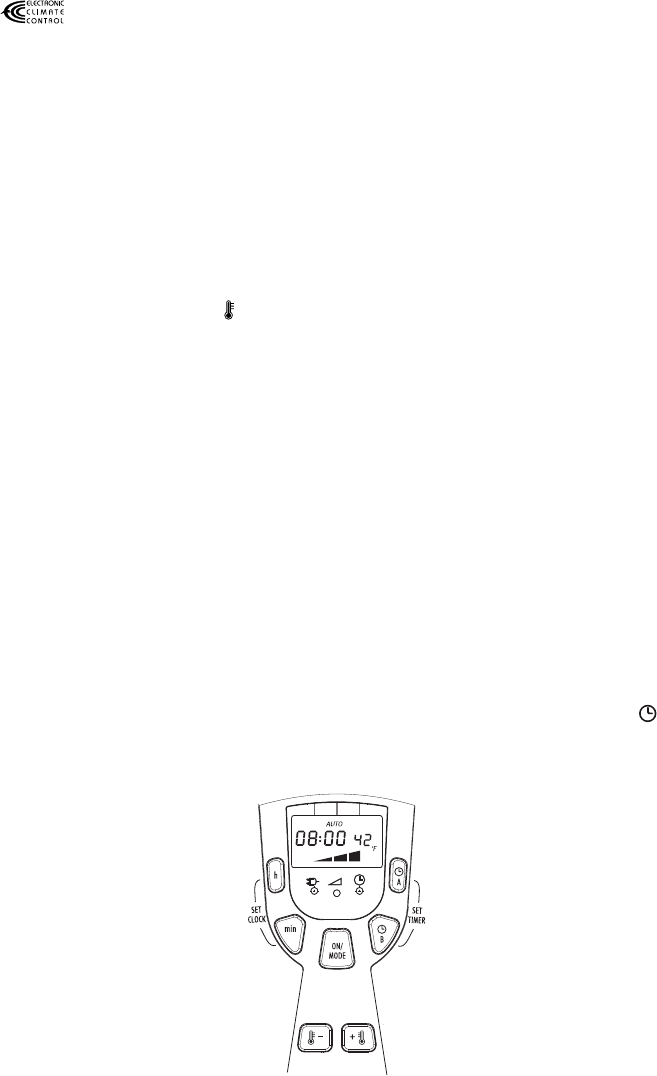
5
ELECTRONIC CLIMATE CONTROL
This heater has Electronic Climate Control (ECC) which automatically monitors and
selects the ideal power setting to maintain your chosen temperature.
If the selected temperature is higher than the actual room temperature, the appliance
will start automatically and rapidly heat the room until it reaches the selected tempera-
ture. The unit will automatically maintain the temperature at a constant level, by swit-
ching between maximum, medium, minimum power and OFF.
If medium power level has been selected using the “ON MODE” button, the appliance
will cycle between medium, minimum power and OFF to maintain a selected tempera-
ture.
ANTI-FREEZE SETTING
Press the “ON MODE” button and select the maximum power level. Set the temperatu-
re to 42°F (5°C) with the “ -” button. When set in this way, the appliance will turn
on automatically only if the room temperature falls below 42°F (5°C), to prevent free-
zing conditions.
Note: This function is not guaranteed in the event of power failures, lasting more than
2 minutes.
TIMER OPERATION
The timer allows you to set two programs in a 24-hour period.
To program the timer:
Press the Timer button A (see Figure 2), this the following is displayed:
- The flashing message “--:--“;
- The message “ON” at the bottom left (ON time setting);
- The symbol “A” at the right indicating that the first program controlling is being set;
To set the “START” time press the “h” button to set the hour and “min” button to set the
minutes, then confirm the “START” time by pressing the “Timer button A” again.
The words “OFF” and “12:00” appear on the display.
Set the time you want the appliance to go OFF using the “h” button and “min” button,
then confirm the OFF time by pressing the “Timer button A” again.
At this point, the word “AUTO” appears at the top of the display and the “ ”
indicator light comes on to indicate that the appliance is ready to operate at the
programmed time maintaining the preset comfort temperature (fig.2).
fig. 2










